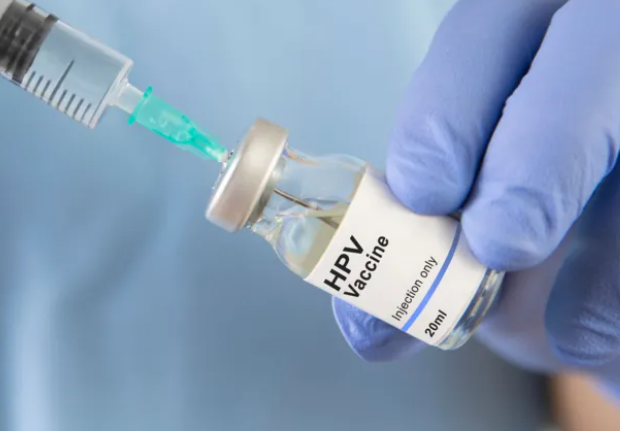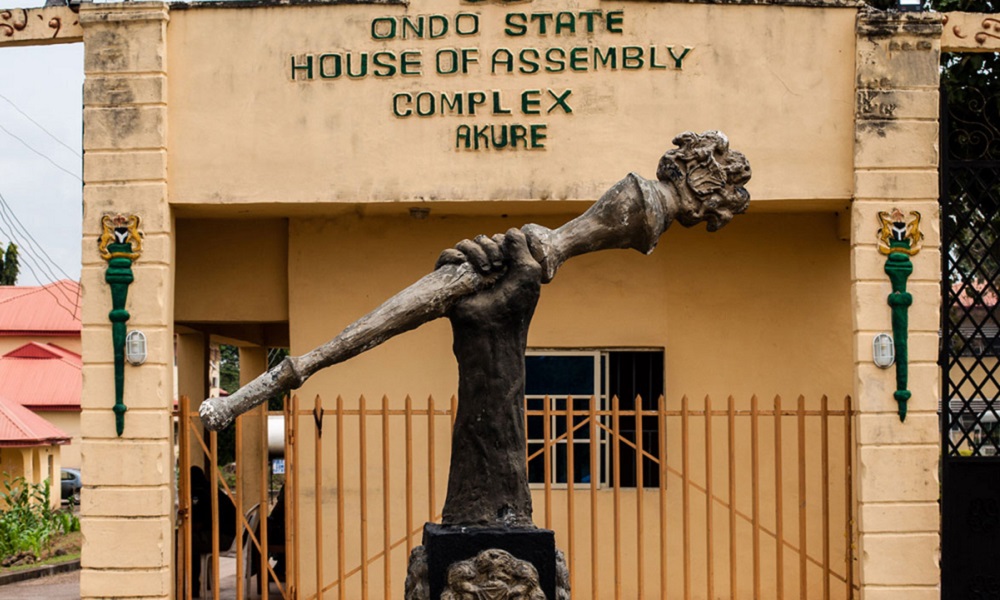News
Experts Reveal Why Manhood Cancer Is On The Rise

In 2018, Brazilian pensioner João sought medical help after he found a wart on his penis.
“I started visiting medical clinics to find out what it was, but all the doctors told me it was due to excess skin and prescribed medication,” the 63-year-old recalls.
Despite the medication, the wart continued to grow. It started to take a toll on his marriage and João and his wife’s sex life declined. “We were like siblings,” he admits. He was determined to find out what was going on.
For five years João, not his real name, went back and forth to specialists who prescribed more medication and ordered new biopsies. “Nothing solved it,” he says.
Then, in 2023, he was given a diagnosis – João had penile cancer.
“For my family, it was a very unpleasant surprise, even more so because I had to have part of the penis amputated. I feel like I was decapitated,” he says.
“It’s a type of cancer that you can’t talk about with people because it could turn into a joke.”
Penile cancer is rare, but incidences and mortality rates are on the rise around the world.
According to the latest studies, Brazil, where João is from, has one of the highest incidence rates of 2.1 per 100,000 men.
*Terrified of surgery’*
Between 2012 and 2022, there were 21,000 reported cases, according to Brazil’s Ministry of Health. This resulted in more than 4,000 deaths and, over the past decade, there have been more than 6,500 amputations – averaging one every two days.
Maranhão, the poorest state in Brazil, was found to have the highest incidence rate globally at 6.1 per 100,000 men.
Symptoms of penile cancer often start with a sore on the penis that does not heal and a strong-smelling discharge. Some people get bleeding and colour changes of the penis, too.
When detected early, there is a high chance of recovery through treatments such as the surgical removal of the lesion, radiotherapy and chemotherapy.
But if left untreated, partial or total amputation of the penis, and possibly other nearby genital organs such as the testicles, may become necessary.
João underwent a partial amputation in January and says it was a difficult time.
“It’s something you never imagine will happen to you, and when it does, you can’t just go around telling people,” he says.
“I was terrified of surgery, but there was no other alternative. The feeling in the first weeks after the surgery was one of sadness, I can’t deny it. Not having part of your penis is horrible.”
Some patients undergo a total amputation which is life-changing.
Thiago Camelo Mourão from the Department of Urology at AC Camargo Cancer Center in São Paulo says: “In the case of partial amputation, urine continues to exit through the penis.
“However, in total amputation, the urethral orifice can be relocated to the perineum, between the scrotum and the anus, requiring the patient to urinate while sitting on the toilet.”
Mauricio Dener Cordeiro of the Brazilian Society of Urology says personal hygiene is important
Mauricio Dener Cordeiro of the Brazilian Society of Urology says the persistent infection of human papillomavirus (HPV), a name given to a common group of viruses, is “one of the main risk factors”. HPV can be transmitted during sex and in some cases, it can lead to cancers including in the mouth and penis.
He says: “Mass vaccination against HPV is essential due to its high effectiveness in preventing related lesions,” but he adds that vaccination rates in Brazil are below the level needed to be truly effective.
“In Brazil, despite the availability of the vaccine, the HPV vaccination rate remains low for girls – reaching only 57% – and for boys, it doesn’t exceed 40%,” he says. “The ideal coverage to prevent the disease is 90%.”
He believes misinformation about the vaccine, unfounded doubts about its effectiveness and a lack of vaccination campaigns have contributed to the low take-up.
According to the UK’s National Health Service (NHS) website, smoking can increase the risk of getting penile cancer, too. It also says you might be more likely to get penile cancer if you “have problems pulling back your foreskin (the skin covering your penis) to keep your penis clean (a condition called phimosis)”.
“When a man does not expose the glans and fails to clean the foreskin properly, it produces a secretion that accumulates,” Dr Cordeiro says. “This creates a highly favourable environment for bacterial infections.
“If this occurs repeatedly, it becomes a risk factor for the appearance of the tumour.”
Getty Images
Mass vaccination against HPV is essential to prevent penile cancer, experts say
But Brazil is not the only place where penile cancer is on the rise. According to the latest research, the number of cases is increasing around the world.
In 2022, the journal JMIR Public Health and Surveillance published the results of a large-scale analysis involving the latest data from 43 countries.
It found the highest incidence of penile cancer between 2008 and 2012 was in Uganda (2.2 per 100,000), followed by Brazil (2.1 per 100,000) and Thailand (1.4 per 100,000). The lowest was in Kuwait (0.1 per 100,000).
“Although developing countries still bear the higher incidence and mortality of penile cancer, the incidence is on the rise in most European countries,” the team of researchers led by Leiwen Fu and Tian Tian from Sun Yat-Sen University in China found.
They reported that England had seen an increase in penile cancer, rising from 1.1 to 1.3 per 100,000 between 1979 and 2009 and in Germany cases increased by 50% from 1.2 to 1.8 per 100,000 between 1961 and 2012.
These figures are only set to get higher, according to the Global Cancer Registries prediction tool. It estimates that by 2050, the global incidence of penile cancer will rise by more than 77%.
This change can largely be attributed to the ageing population, according to the experts, who say the highest incidence occurred in men in their 60s.
Dr Cordeiro says: “Penile cancer is a rare disease but also highly preventable”.
He advised that using condoms during sex and undergoing surgery to remove the foreskin in cases of phimosis could help
reduce the risk of penile cancer.
Neil Barber, Clinical Lead for Urology at Frimley Health NHS Foundation Trust, adds: “Penile cancer is almost unheard of in the circumcised population. Poor hygiene and infections beneath the foreskin, as well as conditions like phimosis that make it difficult to retract the foreskin and maintain good hygiene, are risk factors. This is linked to higher overall infection risks”.
“Established risk factors also include unprotected sex, specifically not using condoms, with poor hygiene further increasing risks through this route.”
João is currently waiting for his latest test results, which he will receive later this year. “I’m confident that these exams will show that I’ll be cured,” he says.
“Now, following the amputation, the pain has gone away, and I’ve been feeling much better. But I’ll have to live with a partially amputated penis for the rest of my days.”
According to Cancer Research UK, more than 90% of men diagnosed with penile cancer which has not spread to nearby lymph nodes survive for five years or more
News
Army acquires 43 drones, wings 46 Turkey-trained personnel

The Federal Government has bolstered the Nigerian Army’s operational capacity with the acquisition of 43 Bayraktar TB2 drones, primarily for deployment in the North-West theatre of operations.
The Commander of the Nigerian Army Space Command, Brig. Gen. U.G. Ogeleka, disclosed this on Tuesday during the winging ceremony of 46 personnel trained in the operation and maintenance of the drones.
The initiative, codenamed Project Guardian, aims to strengthen military operations against insurgency and other security challenges in the region.
“Between May and September 2022, a team of 35 officers and 11 soldiers from the Nigerian Army’s routinely piloted aircraft system regiments underwent specialised training in Turkey on the operation and maintenance of the Bayraktar TB2 drones,” Ogeleka said. “The training crew included multi-piloted aircraft pilots, mission operators, avionics, and mechanical engineers and technicians.”
Out of the 46 trained personnel, 14 are multi-piloted aircraft pilots, seven are mission operators, and 23 are engineers and technicians.
Ogeleka presented 22 of the trained personnel for the winging ceremony, noting that the others are actively engaged in operational duties.
The Chief of Army Staff, Lt. Gen. Olufemi Oluyede, praised the acquisition of the drones and the training of personnel as significant steps toward enhancing the army’s professionalism and combat readiness.
“The winging of these 22 officers and soldiers as pilots and certified maintenance engineers is a morale booster for others in service,” Oluyede said. “It confirms their readiness to operate and maintain the Turkish Bayraktar TB2 drones in our inventory.”
Oluyede further revealed plans to procure additional unmanned aerial systems in the coming year to strengthen military operations across all theatres in the country.
The drones will play a critical role in addressing security challenges in the North-West, a region plagued by banditry and insurgency.
Their advanced surveillance and strike capabilities are expected to significantly enhance the Nigerian Army’s operational effectiveness.
This development underscores the government’s commitment to leveraging technology to improve national security and highlights the Nigerian Army’s drive to modernize its arsenal and build capacity within its ranks.
With more unmanned aerial systems set for acquisition, the military’s ability to conduct precise, real-time surveillance and combat operations is poised for substantial improvement.
News
Ondo Assembly mulls 10-year jail term for land grabbers

The Ondo State House of Assembly is considering a bill that proposes harsh penalties for land grabbers, including up to 10 years imprisonment for forceful entry or illegal takeover of properties.
Governor Lucky Aiyedatiwa has further reinforced the fight against land grabbing by signing an Executive Order to prohibit such activities.
The order aims to end forceful entry, illegal occupation of landed properties, and fraudulent or violent conduct related to land in the state.
To strengthen enforcement, the governor has established a Task Force to protect property rights, uphold the rule of law, and ensure a secure environment for property owners and residents.
The proposed bill also includes severe penalties of up to 21 years imprisonment for selling family land without the consent of the family head or secretary.
Hon Moyinolorun Ogunwumiju, the lawmaker representing Ondo West Constituency 1, who sponsored the bill, spoke during a public hearing on the bill
Hon Ogunwumiju assured stakeholders that the bill would improve land administration, protect landowners, attract investors, and foster peace and development in the state.
He explained that the bill sought to regulate land dealings, protect landowners and buyers, penalise encroachers, and criminalise unregistered agents.
Ogunwumiju said the bill proposed penalties of up to 10 years’ imprisonment for forceful entry or takeover of properties and up to 21 years for selling family land without the consent of the family head or secretary.
Speaker of the Assembly, Hon Olamide Oladiji, urged committee members and stakeholders to ensure the bill served the interests of the people.
He said the bill would maintain order in the state and impose necessary sanctions on offenders.
“Land grabbers pose a significant threat to property acquisition. Their activities ranging from trespassing, forceful occupation, and illegal sales of properties to multiple buyers must be confronted decisively.”
Majority Leader and Chairman of the House Committee on Rules and Business, Oluwole Ogunmolasuyi, said the bill, would benefit the society at large
Ondo Commissioner for Justice and Attorney General, Kayode Ajulo said the bill would enhance land administration and complement the executive order signed by Governor Aiyedatiwa.
Stakeholders including traditional rulers called for full implementation of the bill when signed into law.
News
FG earmarks N250bn for Lagos-Abuja rail project in 2025 budget

The federal government has made an allocation of N250 billion in the 2025 budget for the Lagos–Abuja mass transit rail project.
This budgetary investment is part of a broader plan to revitalize Nigeria’s infrastructure and stimulate economic growth.
The government’s focus on infrastructure development is rooted in the belief that it is a cornerstone of long-term economic planning.
By investing in critical infrastructure such as roads, railways, energy, healthcare, and education, the administration aims to create a conducive environment for both domestic and foreign investment.
The Lagos-Abuja rail project, in particular, is expected to have a transformative impact on the Nigerian economy.
By improving transportation connectivity between two major economic hubs, the project will facilitate the movement of goods and people, reduce logistics costs, and stimulate economic activity.
Additionally, the project is expected to create numerous jobs, both directly and indirectly, contributing to the country’s overall employment rate.
The government’s infrastructure investments are also aimed at addressing regional disparities.
By connecting different parts of the country through improved transportation networks, the administration hopes to stimulate economic growth in underserved regions, reduce poverty, and promote equitable development.
The 2025 budget signals the government’s commitment to transforming Nigeria’s infrastructure landscape.
By investing in critical projects like the Lagos-Abuja rail line, the administration aims to lay the foundation for a more prosperous and connected Nigeria.
However, the success of these initiatives will depend on effective planning, efficient implementation, and transparent governance.
-

 News20 hours ago
News20 hours agoGov Adeleke Speaks On Death Sentence For Chicken Thief
-

 News13 hours ago
News13 hours agoFinally, PDP Flushes Out Suspended National Vice Chairman, Ali Odefa
-

 News20 hours ago
News20 hours agoDelta Assembly pardons two suspended members
-

 News16 hours ago
News16 hours agoNetizens Slam Lawmakers As They Sing Tinubu’s Anthem At Budget Presentation
-

 News20 hours ago
News20 hours agoJust in: CBN Imposes N100k Bar on PoS, Issues Warning to Operators
-

 News10 hours ago
News10 hours agoReps Call for Revival of NAPAC to Boost Transparency, Accountability
-

 News20 hours ago
News20 hours agoHeavy Security Presence at National Assembly as President Tinubu Presents 2025 Budget
-

 News9 hours ago
News9 hours agoReps Recommends Delisting NECO, UI, Labour Ministry, 21 Others From 2025 Budget








